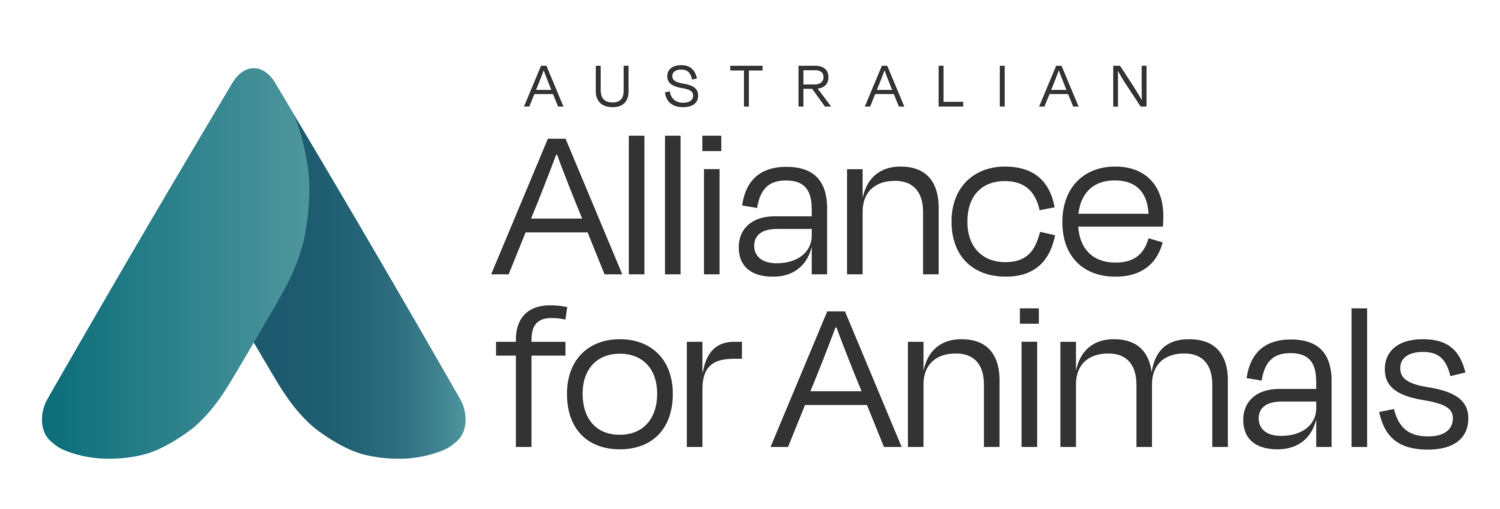Morrison Government’s Attempted Backflip on the Northern Summer Live Export Ban
Update (8 April 2022) - Following the incredible advocacy of our member organisations and their supporters, the Government backtracked from some of the worst elements of the proposal. In particular, scrapping the reduction of the ban period for two key export destinations - Kuwait and UAE. This is an important win, preventing the suffering of thousands of sheep. However, it’s not time to celebrate yet. Concerningly, the ban period has been reduced for exports to other countries across the Middle East, and there are still very serious issues with how the trade is regulated in general. Not the least of which is how this decision came about - months before the review process was even finalised and with little prospect for proper parliamentary scrutiny. This is why the Alliance is taking advantage of the rare opportunity presented by the upcoming federal election to secure political commitments to introduce a much-needed national animal welfare commission and to phase out this unacceptable trade once and for all.
What’s happening?
The Morrison Government is proposing a backflip on the northern summer live export ban.
Two years ago a limited ban period was introduced, halting the export of sheep to the Middle East during the northern hemisphere’s hottest summer months.
Although the ban was never perfect, it was at least a step in the right direction.
However, now the Morrison Government is proposing to increase the heat-risk threshold and roll back the prohibition period to give exporters a longer period to trade.
We can’t let this happen.
Why is this a problem?
Inevitable heat stress
Reducing the ban period will condemn thousands of sheep to suffer from inevitable heat stress.
We know this is the case thanks to eyewitness reports from observers on board ships allowed to export during the northern summer.
In 2020, a ship (Al Kuwait) was granted a controversial exemption to export during the banned months, with the Independent Observer on board unsurprisingly reporting that 1000 sheep were forced to endure severe heat stress. This was exactly the outcome the prohibition was implemented to prevent.
In fact, the majority of voyages allowed to depart during the summer period over the last three years reported significant heat stress. Yet this is the very period the Government is proposing to partially re-open to the trade.
Australian sheep on board a live export vessel
Inappropriate heat-risk threshold & unreliable data
The Government’s proposal to increase the heat-risk threshold is equally concerning – a move which flies in the face of the recommendations made by the most recent scientific review on the issue.
Rather than setting the threshold according to the actual heat experience of sheep on the deck, the Government is curiously using the ambient air temperature of the region as its yardstick. As ambient temperature is on average lower, this questionable methodology will directly lead to greater heat stress suffering.
In general, the Government is relying heavily on modelling and risk statistics, rather than looking to the clear and unequivocal evidence and history of observed heat stress.
This over-reliance is particularly ineffective and inappropriate given that, in their own words, the Government lacks ‘an adequate amount of quality data’ on which to base their recommendations.
What do the animals experience?
Even under the best possible conditions, animals suffer during the live export process. Confined for sometimes up to five weeks at high stocking densities with no air conditioning, it’s not hard to see why the addition of high temperatures can radically increase welfare risk.
Heat stress impacts all animals differently, but generally it causes a range of distressing symptoms, including breathing difficulties, tongue-protruding and open mouth panting.
And when heat stress reaches extreme levels, animals can and do die of heat stroke. Which is precisely what happened on the infamous Awassi Express voyage in 2017 where 2400 sheep died, sparking the very reforms the Government is now seeking to unwind.
Australian sheep transported by sea from Australia to the Middle East. Credit: Jo-Anne McArthur/Israel Against Live Shipments/We Animals Media.
What needs to happen?
Ultimately, the entire industry needs to be phased out, due to the inherent and inevitable suffering involved with every aspect of the live export process.
However, in the short-term, the Government needs to change the heat-risk threshold to align with best-available science, and immediately implement an extended prohibition on the trade. The ban should cover the full period of increased risk, from 1st May to 31st October.
To ensure that any future welfare standards and policies better align with community expectations and contemporary animal welfare science, it is also essential for the Government to create a well overdue national animal welfare commission.
What can we do?
You can do three things.
Write, call or tweet your Federal MP to let them know you oppose the ban backflip. You can find your MP here or here.
Support the campaign to create a national animal welfare commission to provide proper oversight over animal welfare in Australia. Read more here.
Educate yourself about where your political leaders stand on these issues before you vote in the national election later this year.



